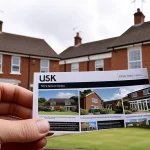Timeline of Recent Events Impacting UK Culture
Understanding the recent events in UK over the past five years reveals a complex cultural timeline shaped by intertwined political, social, and economic changes. Key moments such as the formal Brexit transition in 2020 have profoundly influenced national attitudes and identity, marking a focal point in the UK’s social changes. The COVID-19 pandemic further accelerated shifts by disrupting daily life and cultural participation, from arts attendance to community gatherings.
Economic fluctuations, including the escalating cost of living and inflation, have affected public access to cultural events and altered spending priorities. For example, rising household expenses have reduced discretionary spending, impacting attendance at theatre, concerts, and festivals—key elements in British cultural practice.
Government reports and reputable news sources confirm that these events are not isolated; rather, they form a chronological mapping of cause and effect. This timeline underscores how political decisions, public health crises, and economic pressures collectively reshape societal values and cultural expressions across the UK. Appreciating this layered timeline aids in grasping the evolving landscape of UK social changes and its lasting impact on culture.
Political Changes and Cultural Shifts
Political changes in the UK, especially following Brexit, have deeply influenced the nation’s cultural identity and expressions. The Brexit cultural impact extends beyond economics to affect how communities perceive themselves and others. National identity debates intensified as the UK government redefined relationships with Europe, prompting shifts in cultural attitudes toward belonging and inclusion.
Changes in UK government leadership further affected public values, notably influencing arts funding priorities. Several administrations have varied their support for cultural institutions, affecting programming and outreach efforts. For example, funding reallocations impacted diversity initiatives, which are crucial to reflecting the UK’s multicultural makeup within the arts sector.
Policy reforms under different governments also shaped UK government and culture, particularly through diversity and inclusion policies. These reforms seek to address historic inequalities and foster social cohesion by promoting varied cultural expressions. Consequently, political changes UK-wide directly correlate with evolving cultural practices, as government decisions continue to steer the development of a more inclusive and representative cultural landscape.
This interconnection between political shifts and culture highlights the ongoing significance of understanding recent events in UK in the context of their broader effects on society.
Social Movements and Community Response
Recent events in UK have ignited significant UK social movements that influence cultural attitudes and public discourse. Notably, the Black Lives Matter protests intensified conversations about racial equality, prompting reflection on systemic injustices within UK society. These movements challenged media representation, advocating for more authentic and diverse portrayals in news and entertainment.
Gender equality campaigns also surged, spotlighting disparities and pushing for legislative reforms as part of wider UK social changes. Climate activism gained momentum, linking environmental concerns with social justice demands. These intertwined movements fostered a cultural timeline marked by increased awareness and activism.
Community responses include grassroots projects promoting cultural dialogue and inclusion, strengthening social cohesion. Local initiatives have created safe spaces for marginalized voices, reflecting the diversity in UK culture. These responses illustrate how recent events in UK shape societal values beyond formal politics, embedding activism into everyday cultural life.
Government and civil society reports document these shifts, confirming that activism and community engagement form crucial components of the evolving UK cultural timeline. Examining these movements reveals their role in redefining public values and encouraging inclusive cultural practices across the country.
Economic Shifts and Cultural Transformation
Recent events in UK have triggered notable economic changes that directly affect cultural participation and expression. The prolonged cost of living crisis has altered spending habits, with families prioritising essentials over discretionary expenses like theatre tickets or festival visits. Inflation and employment fluctuations compound these effects, reducing public engagement with cultural events.
These economic pressures impacted the UK arts and economy by forcing institutions to adapt. Many arts organisations reported decreased attendance and funding challenges, leading to innovative solutions such as digital performances and tiered pricing models. For example, some theatres expanded livestream offerings to maintain accessibility despite physical attendance declines.
Government and independent reports confirm that these economic shifts intertwine with the broader UK social changes, reshaping how culture is experienced. This evolving cultural timeline reflects not just financial constraints but also a transformation in audience expectations and participation. Economic hardship has heightened awareness of cultural inclusivity and accessibility, prompting institutions to rethink outreach and engagement strategies to remain relevant during challenging times.
Timeline of Recent Events Impacting UK Culture
Recent events in UK over the past five years form a dynamic cultural timeline, reflecting an intricate interplay of political, social, and economic factors. Starting with the Brexit transition in 2020, national identity discussions intensified, influencing public attitudes and social cohesion. This political shift is a key marker on the cultural timeline, redefining belonging and cultural expression.
Simultaneously, the COVID-19 pandemic interrupted traditional cultural participation, catalysing digital engagement and altering the public’s relationship with arts and community events. These shifts illustrate how UK social changes intertwine with external disruptions, prompting adaptations in cultural practices and accessibility.
Economic challenges, notably the escalating cost of living, further shaped the cultural timeline by modifying spending behavior. Families prioritized essentials, reducing discretionary cultural attendance, which pressured cultural organisations to innovate for survival and relevance.
Government and independent reports confirm the interconnected nature of these events, reinforcing that the recent events in UK create a chronological mapping essential for understanding current and future cultural transformations. This timeline exemplifies the evolving face of UK society, where each event interlocks to influence values and cultural participation.
Timeline of Recent Events Impacting UK Culture
The recent events in UK over the last five years reveal a detailed cultural timeline shaped by overlapping political, social, and economic developments. Key political milestones, such as the formal Brexit transition, have recalibrated cultural identity and national sentiment. This event initiated considerable shifts in how communities perceive inclusion and belonging, marking a foundational moment within the cultural timeline.
Social movements have further influenced these shifts, with activism addressing racial equality, gender rights, and environmental concerns adding layers to the evolving landscape. These collective actions have transformed public discourse and increased demand for diversity in cultural expressions, reinforcing substantial UK social changes.
Economic challenges, particularly the rising cost of living and inflation, have compounded the effects on cultural participation. Reduced disposable income limits attendance at arts and cultural events, pushing institutions to innovate through digital solutions and accessibility initiatives. Government and independent reports detail these linked developments, confirming that the recent events in UK form an interconnected cultural timeline essential for understanding ongoing shifts in social values and practices.


